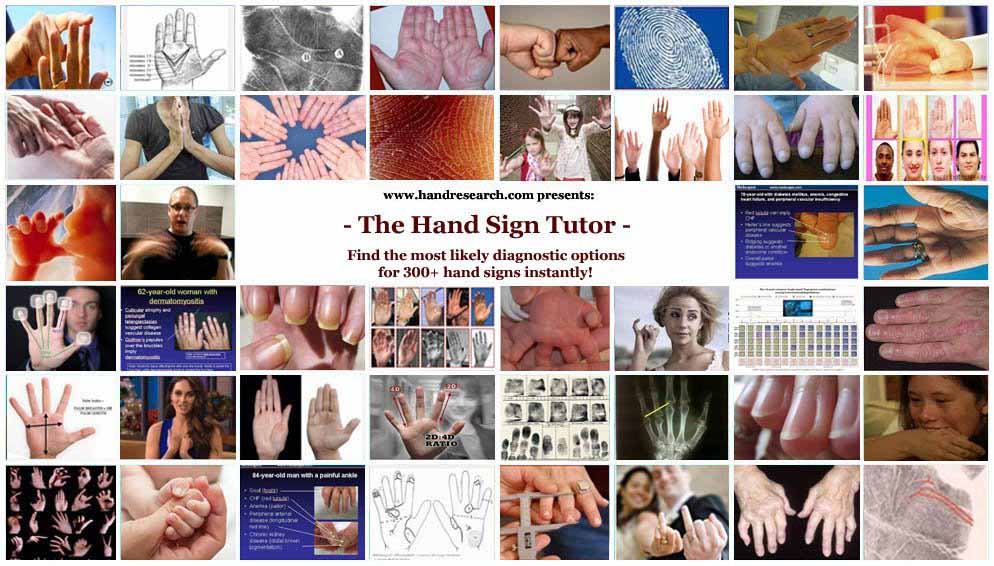Most likely diagnostic options for the palmomental reflex - where stimulation of the thenar eminence causes
an involuntary contraction of the mentalis muscle of the chin, usually only present in elderly (ranked by 'weight' for the general population):
- ASSOCIATED PSYCHOLOGICAL CONDITIONS:
• mood disorders [~15% | 1:10 | weight: 0,30]
• schizophrenia [~10% | 1:100 | weight: 0,02]
- ASSOCIATED MEDICAL CONDITIONS:
• dementia [~30% | 1:80 | weight: 0,075]
• Alzheimer's disease [~28% | 1:100 | weight: 0,056]
• trisomy 21 (= Down syndr.) [~50% | 1:700 | w: 0,014]
• HIV [~15% | 1:270 | weight: 0,011]
[1st figure = prevalence hand sign in condition | 2nd
figure = prevalence condition in GP | 3rd figure =
estimated hand sign weight for condition relative
to GP (>0,5 = present in majority of GP)]
|
Quick summary:
the palmomental reflex is typically seen in the elderly; high prevalence is especially found in mood disorders, Alzheimer's disease and dementia; occasionally it is also found in healthy elderly.
[For every 100 palmomental reflex cases in the general population (GP) you can expect to find
30 mood disorder cases, 7 dementia cases, etc.]
|
